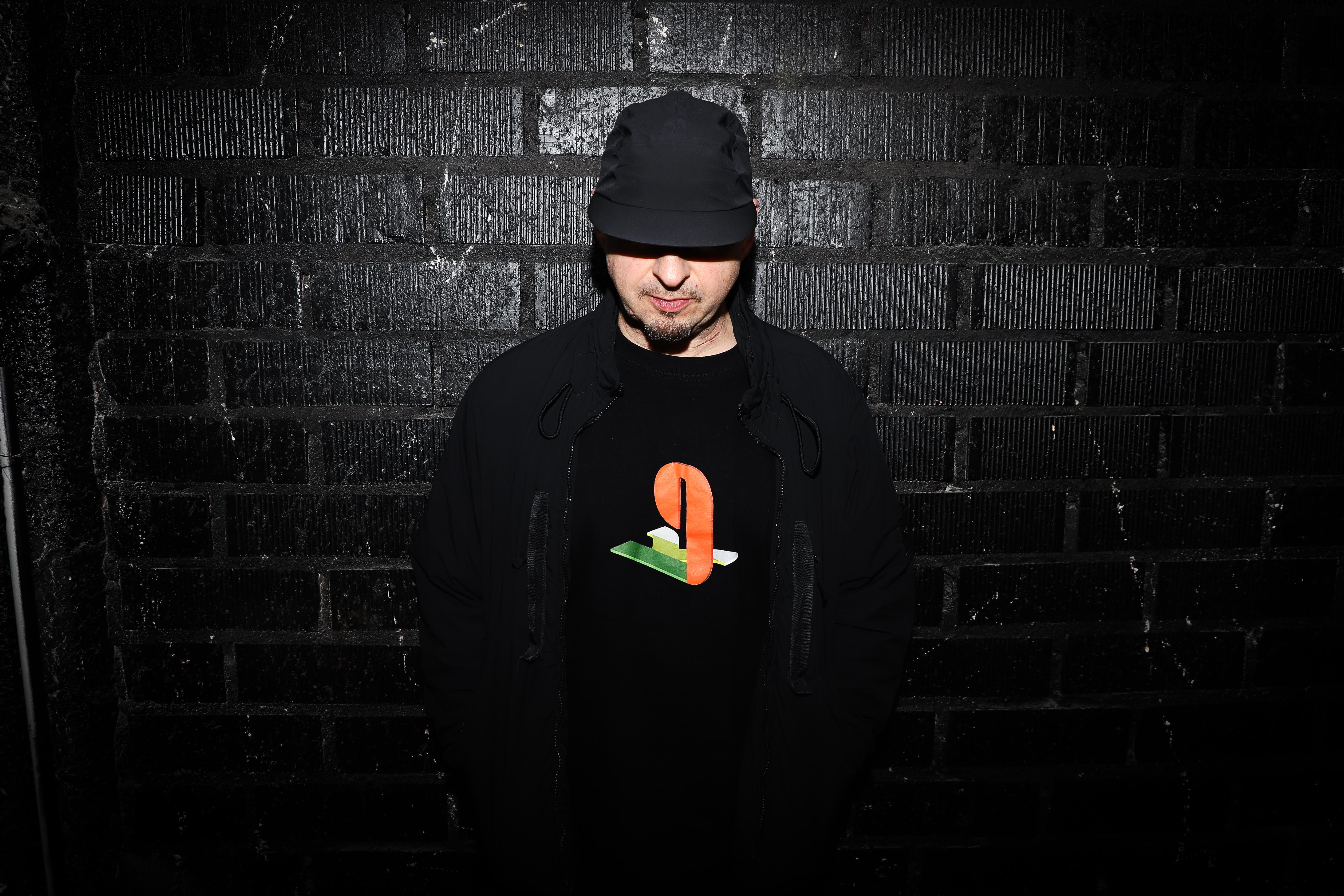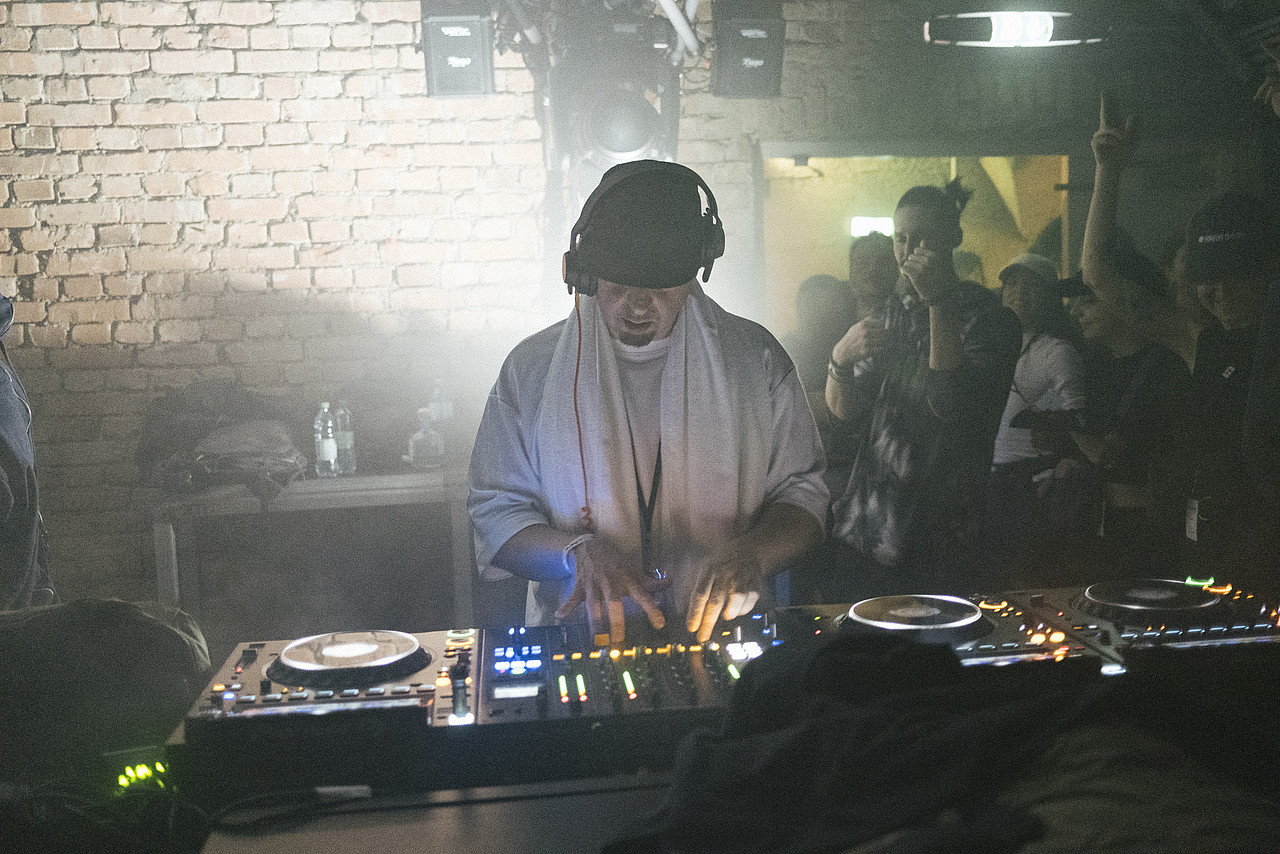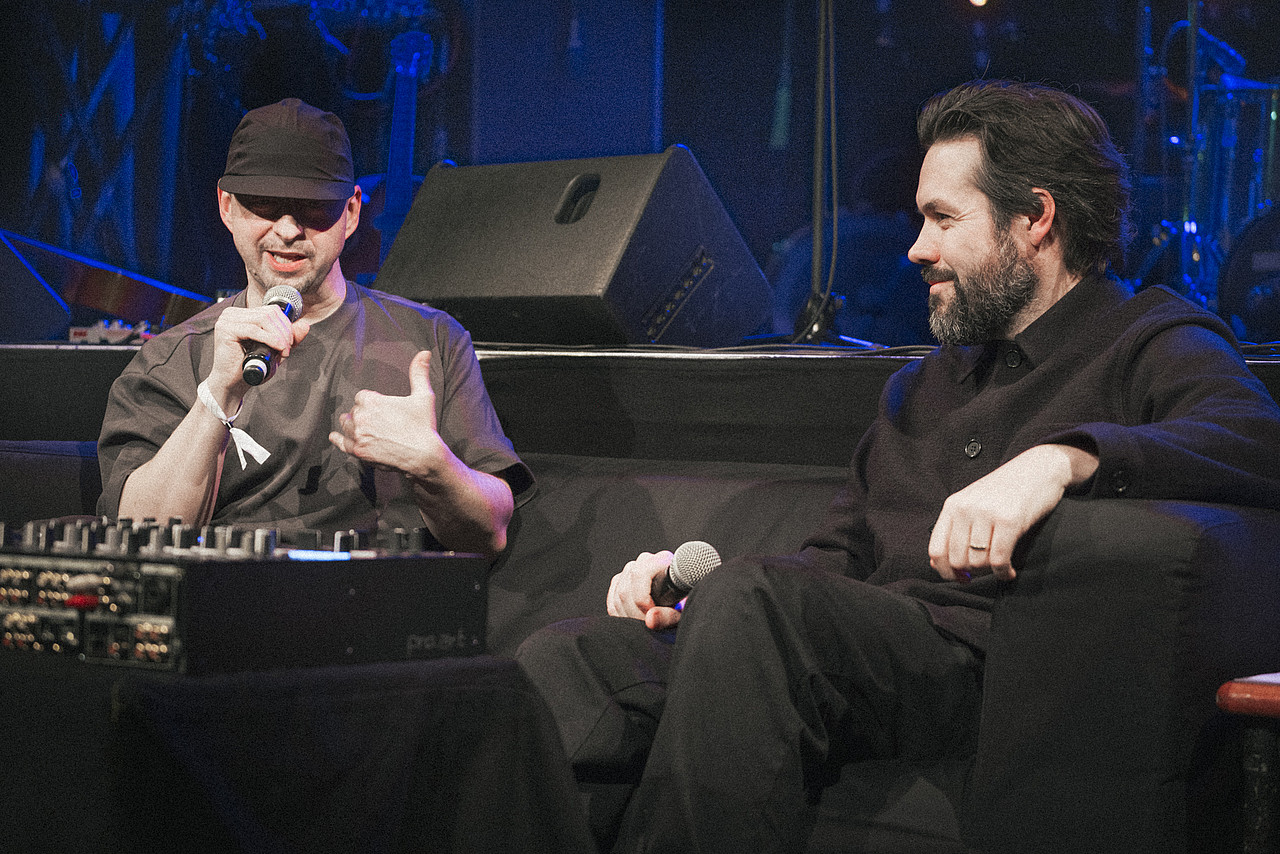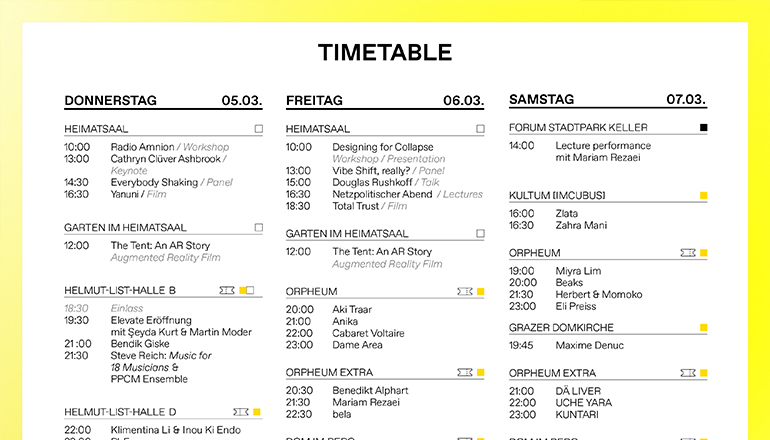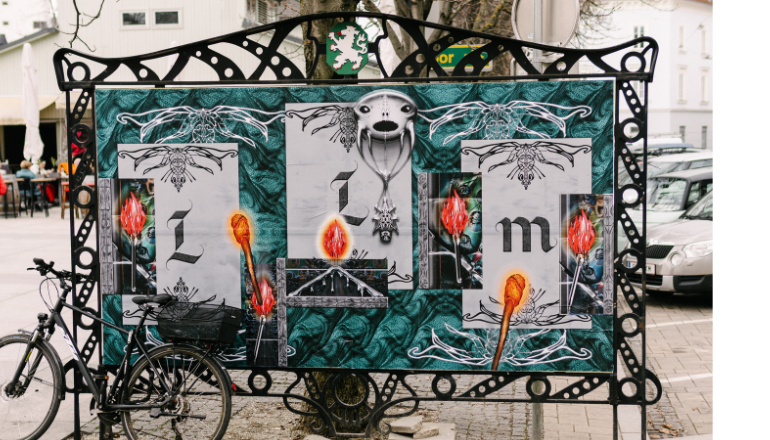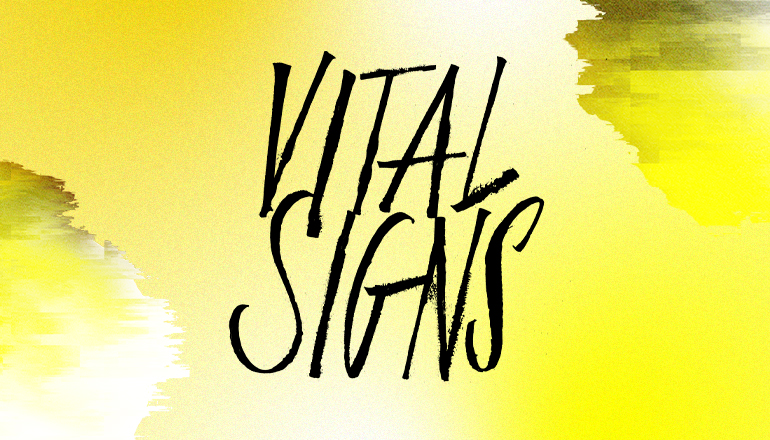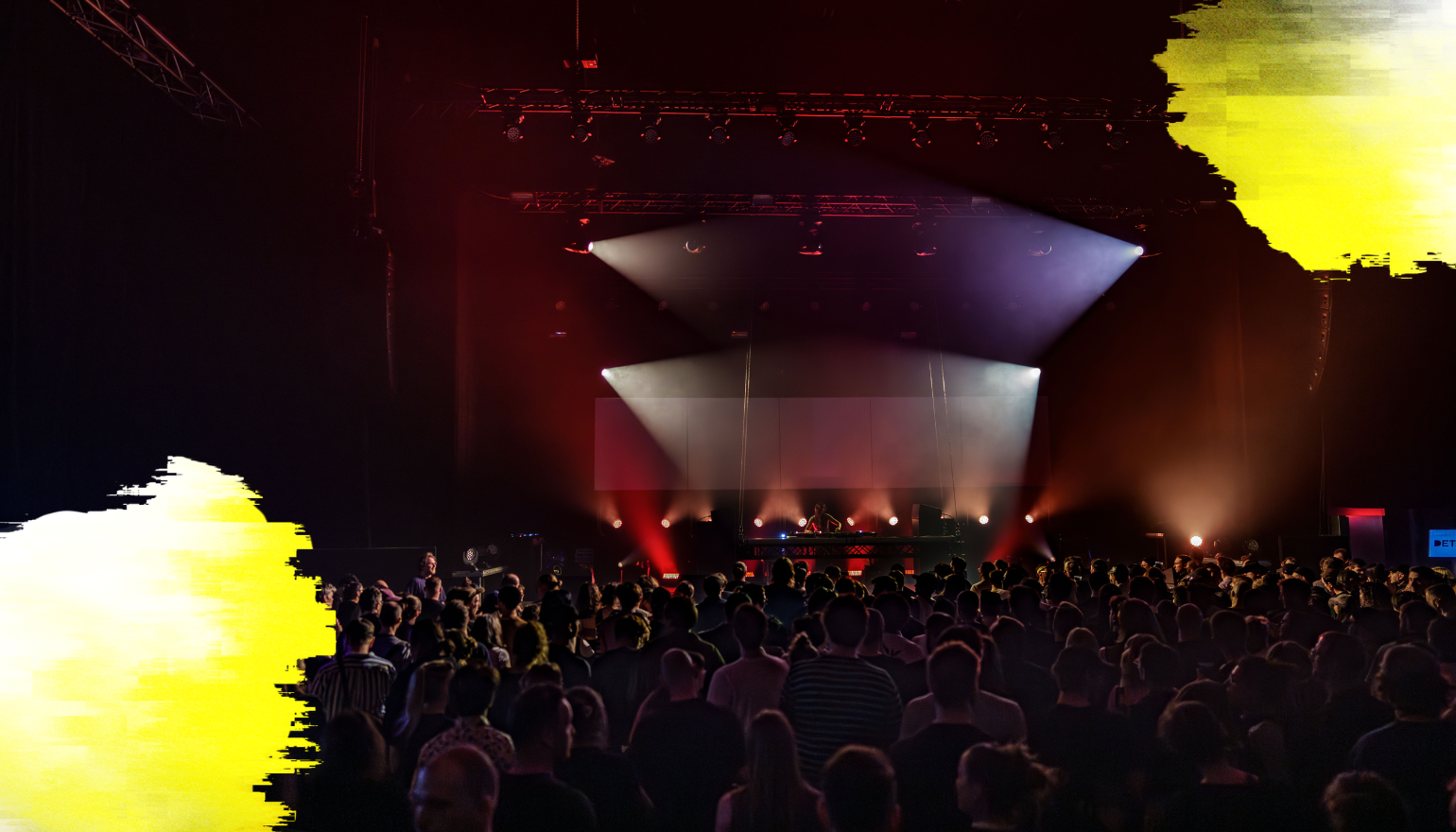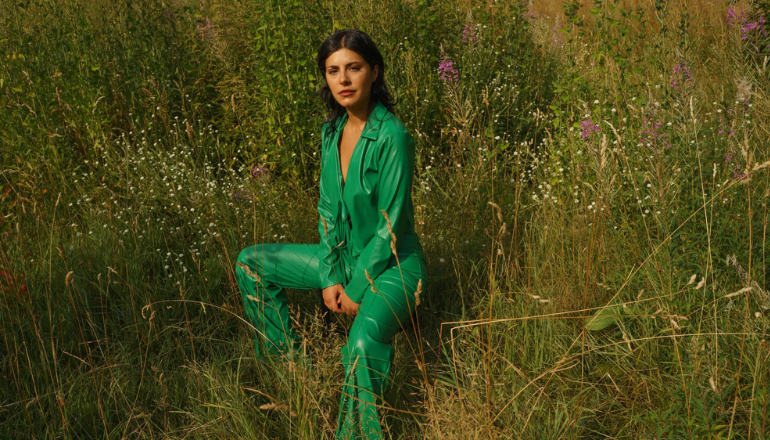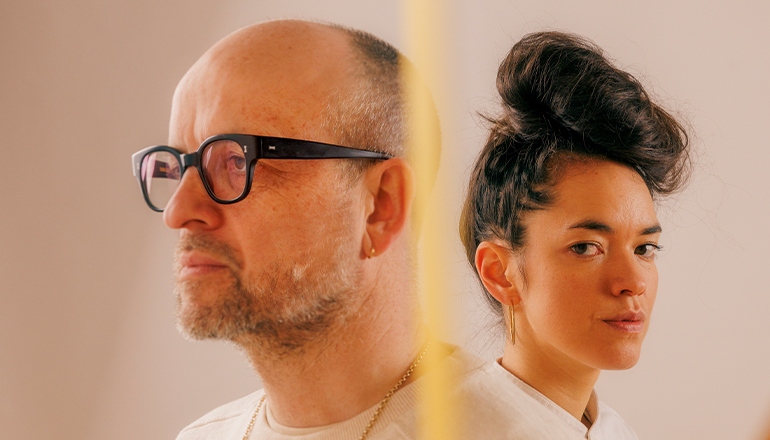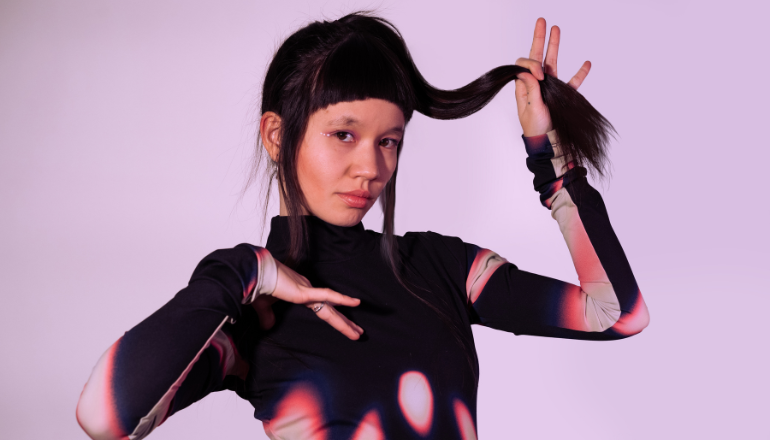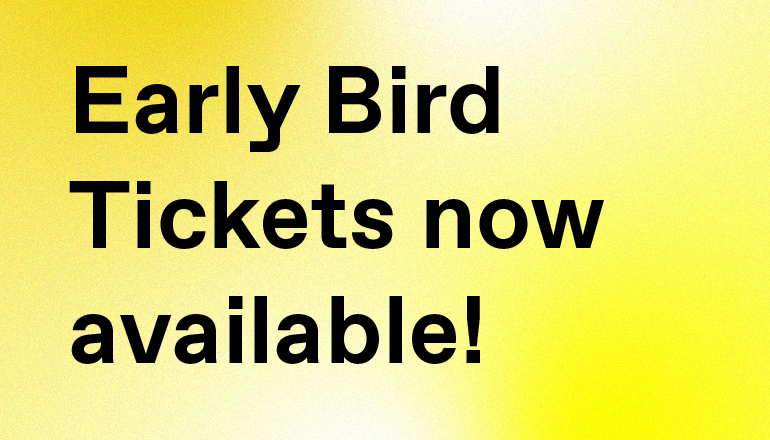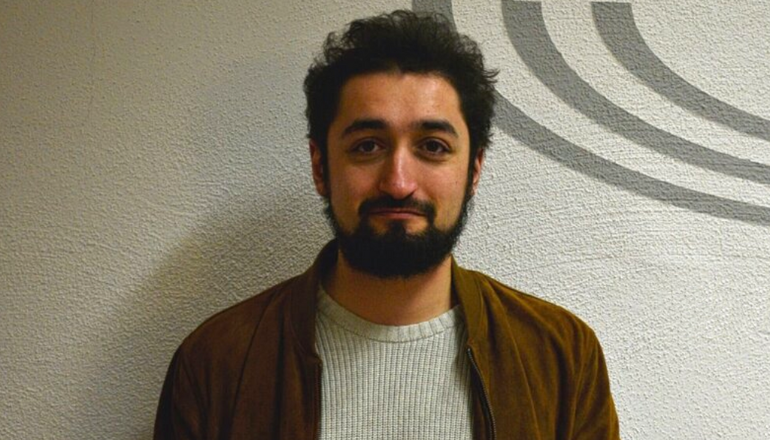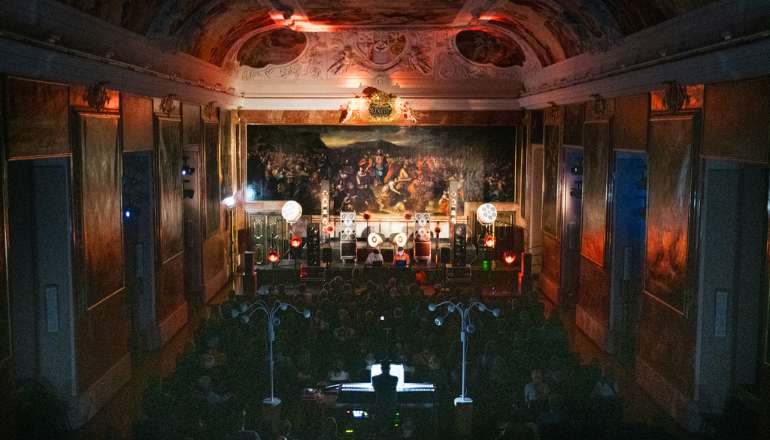"To think the present differently" – An Interview with Kode9
You’ve studied at the legendary CCRU (Cybernetic Cute Research Unit), an institution which featured powerful thinkers like Kodwo Eshun or Mark Fisher, and shaped the musical discourse. I'm wondering how their philosophy influenced your work?
Kodwo was an associate member of the CCRU and Mark was a fellow Ph.D student. They were both a little older than myself. The source of inspiration was quite simple. Both had managed, in their writing, to bring together the kind of theoretical interests I had been developing in philosophy – with no particular relation to sound or music – to the music I had been DJing since the mid 90s, two realms that until that point, I had considered separately.
Your philosophical work is often concerned with affection - both physical & emotional. Hyperdub features dancefloor-oriented producers alongside avantgarde pop and R&B artists. Are you deliberately seeking these different intensities and qualities of affection?
Different contexts demand and afford different intensities. Hyperdub has spread out to cover a whole spectrum of intensities and moods, tracking my interests as a listener and dancer and DJ and producer and theorist, but also usually going beyond myself, as the artists we work with have actually redefined and expanded what my own musical interests are.
As a label head, I'm wondering if you have any advice when it comes to balancing your personal taste with a more objective critical view. Is it hard to, or is it even necessary to abstract from your own personal taste?
Being a DJ and a producer and a writer and running the label means that I’m constantly pulling my taste apart in at least four directions. I think as a label, we’ve gone beyond my personal taste for a while ago - now it’s often more important for me to respect the integrity of the artist’s project and follow that. I have a minimal steering role with the artistic direction of the artists on the label.
You've been running the label for 20 years now. It's quite obvious to ask about certain trends of the past two decades. But to take a different turn: are trends repeating themselves, as Mark Fisher proclaimed? Or do you feel like there's a linear development?
Musical scenes might repeat themselves, but always differently, with different personnel, different generations and in different social and technological contexts. This makes the chronology much more complicated than a linear one.
When reading about Hyperdub, critics agree on terms like "progressive", "advanced", "futuristic". Which progression are we talking about exactly?
I don’t know - you should ask those critics - personally I don’t subscribe to a linear, progressive notion of musical evolution, except perhaps on the technological axis, and even that is more complex -and technology is just part of the equation. In my book Sonic Warfare, I’m quite careful to question notions of linearity and futurism in music.
When you started the label you were into jungle f.ex.. What happened to this genre? Did it progress?
It’s more accurate to say that when I started the label, I was in a UK garage phase. Jungle was a long lost love by that point. I’d listened to it so much from 1993 to 1998 that I’d started falling out of love with it, and the musical directions it had taken. There has been a recent resurgence of that 1993-1996 sound that has drawn me back to some of it, but really it was footwork and juke that has been the path that has taken me back, as a DJ, to those faster tempos.
With your own creative outlet as Kode9 you feel fascinated by SciFi, outer space. Your last album is called "Escapology - Music from Astro-Dorian". We know these narratives especially from Detroit producers who were inspired by afrofuturist concepts. What's your reason to leave earth behind and turn to other planets?
Talking about outer space in Escapology and Astro-Darien was just an oblique way of talking about the present.
Sonic fictions open the sounds towards the imaginary. What potential does the imaginary hold?
To think the present differently.
You are a producer and DJ yourself. I always felt that for someone who is part of the theoretical as well as the artistically creative realm, it's really hard to do both as the Über-ich tends to over-criticize. I was thinking if that's valid for you as well? Cause it's taken you seven years between new records in the past. But also you must be utterly busy! Any plans for the next one?
Yes, it sets up an internal battle that can at times be paralysing. Musically, at the moment, I’m just thinking in terms of small projects, like singles that are more direct, as opposed to big, conceptual projects. But that I can change at any moment an idea catches me. There is also a book that I am co-editing called Sonic Faction forthcoming on Urbanomic Press related to the format of that audio essay we have been developing on our sub label Flatlines.
Hyperdub is a label strongly rooted in the UK bass scene. It long was known as representing the sound, vibes and moods of the UK, and more specifically London. When was it that you discovered an affinity for Juke & Footwork, genres that strongly relate to the sound and spirit of the Chicago underground? And did you hesitate to release these sounds or did you feel kindred spirits at work?
I was a fan of Chicago footwork and was happy to be only a fan, but I was encouraged to release some by friends, and when Rashad & Spinn asked to work with Hyperdub, I couldn’t refuse, and it just spiralled from there. Like I mentioned earlier, the tempo and sample sources took me back to my early 90s love of jungle, but with another, equally exciting rhythmic template.
Hyperdub is representing not only sounds for the dancefloor but also artists that are more into finding new forms, new approaches to pop and songwriting. With artists like Loraine James, aya, Dean Blunt, or Laurel Halo you’re gathering very eccentric artists, and highly personal, intimate approaches. Howfar is it attitude becoming form?
I think all of these artists exist in a lane of their own, and that’s what I meant earlier when I referred to enjoying working with artists who redefine my own taste. I can see the coherence of their project and can see that they understand their relationship with their audience better than I can, so we just try to facilitate that.
What I find striking is that Hyperdub is home to so diverse approaches, has such a heterogenous roster, and it still works. What's the relation between knowledge and intuition when signing an artist? Are you always trusting your gut feeling?
These days I put as much importance in the artist being someone I find it interesting to work with, rather than just liking their music. So the gut feeling has to be about the person, not just their sound.
You are one of these rare figures in the music scene who is capable of both theory and practice, but also you're into sound and music alike. Like you have studied the characteristics of the sonic in depth with your two books Sonic Warfare and Unsound, laying bare the impact that sounds are having on the body. We tend to forget that the sonic holds a transformative potential. Which socio-political transformative processes can music encourage?
I think, most importantly, galvanising collective listening as a platform for other non-musical group activity.
Thanks very much for your time!
